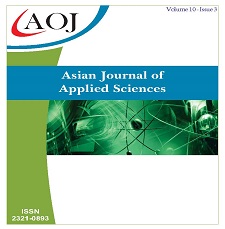Practicality and Effectiveness of Religious Moderation Learning Models: R&D Studies to Improve Students' Diversity Awareness
DOI:
https://doi.org/10.24203/ajas.v10i3.6964Keywords:
Diversity Awareness, Religious Moderation, Akidah Akhlak Subjects.Abstract
This study aims to test the practicality and effectiveness of the religious moderation learning model on the subject of Akidah Akhlak class VIII Madrasah Tsanawiyah, to improve students' awareness of diversity. This research is an R&D research using the ADDIE model which consists of the stages of analysis, design, development, implementation and evaluation. Some of the products produced are, learning model books; teacher's textbook; student textbooks; and lesson plan (RPP). This research was conducted on eighth grade students of Madrasah Tsanawiyah Muhammadiyah, Salaka, Takalar Regency, South Sulawesi, Indonesia. There were 17 students involved in this study. In addition, other participants who were also involved were a teacher in the Akidah Akhlak subject and one observer. The selection of participants was carried out using a purposive sampling technique with the aim of selecting participants who were in accordance with the considerations related to the research objectives. Data collection was carried out using student and teacher response questionnaires; model implementation observation sheet; and a student diversity awareness questionnaire. The data obtained were analyzed quantitatively by calculating scores to determine the practicality and effectiveness of the religious moderation learning model. The results showed that the religious moderation learning model was proven to be practical and effective so that it was feasible to use. With these findings, it is hoped that the Akidah Akhlak subject teacher can explore in the learning process to improve awareness of student diversity.
References
Alamsyah A, Awang Pawi A, Surinderpal, Tawakkal A. Journal Melayu Sedunia APM accepted 2019. 2019 Nov 1;Vol2:380–405.
Kementrian Agama. Arskal Salim Ajak Generasi Milenial Tangkal Radikalisme [Internet]. Kementerian Agama Repubik Indonesia. 2018 [cited 2022 Apr 6]. Available from: https://kemenag.go.id/read/arskal-salim-ajak-generasi-milenial-tangkal-radikalisme-rbkzv
Muthohar A. Ideologi Pendidikan Pesantren, Pesantren di tengah arus ideologi-ideologi pendidikan. Semarang: Pustaka Rizki Putra; 2007.
Futaqi S. Konstruksi Moderasi Islam (Wasathiyyah) dalam Kurikulum Pendidikan Islam. In: Proceedings of Annual Conference for Muslim Scholars [Internet]. Surabaya: Kopertais Wilayah IV Surabaya; 2018 [cited 2022 Apr 6]. p. 521–30. Available from: http://proceedings.kopertais4.or.id/index.php/ancoms/article/view/155
Rusmayani R. Penanaman Nilai-Nilai Moderasi Islam Bagi Siswa di Sekolah Umum. In: Proceedings of Annual Conference for Muslim Scholars [Internet]. Surabaya: Kopertais Wilayah IV Surabaya; 2018 [cited 2022 Apr 6]. p. 786–95. Available from: http://proceedings.kopertais4.or.id/index.php/ancoms/article/view/180
Horn H. What is Diversity. Texas State University: San Marcos; 2013.
Fong EH, Catagnus RM, Brodhead MT, Quigley S, Field S. Developing the Cultural Awareness Skills of Behavior Analysts. Behav Anal Pract. 2016 Mar;9(1):84–94.
Thomas Jr. RR. Diversity management: An essential craft for leaders. Leader to Leader. 2006;2006(41):45–9.
Cleverism. Diversity Awareness [Internet]. Cleverism. 2016 [cited 2022 Apr 6]. Available from: https://www.cleverism.com/skills-and-tools/diversity-awareness/
Santucci A. The performative foreign language classroom as a site of creative disruption. Research in Drama Education: The Journal of Applied Theatre and Performance. 2019 Jul 3;24(3):383–9.
Syifa MM. Formulasi Konsep Moderasi Islam M Mucharom Syifa. Jurnal Ilmiah Mahasiswa Raushan Fikr. 2019 Oct 5;8(1):10–10.
Atiqul Bariroh N: 16410043. KONSEP ISLAM WASATHIYYAH MENURUT M. QURAISH SHIHAB DAN RELEVANSINYA DENGAN MATERI PAI KELAS XI (ANALISIS BUKU WASATHIYYAH: WAWASAN ISLAM TENTANG MODERASI BERAGAMA KARYA M. QURAISH SHIHAB) [Internet] [skripsi]. UIN SUNAN KALIJAGA YOGYAKARTA; 2021 [cited 2022 Apr 6]. Available from: https://digilib.uin-suka.ac.id/id/eprint/47180/
Kementerian Agama Republik Indonesia. Kementerian Agama Repubik Indonesia [Internet]. Kementerian Agama Repubik Indonesia. 2019 [cited 2022 Apr 6]. Available from: https://www.kemenag.go.id/
Wahyudi D, Marwiyanti L. PENERAPAN MODEL PEMBELAJARAN INSIDE OUTSIDE CIRCLE DALAM MATA PELAJARAN AKIDAH AKHLAK. Jurnal MUDARRISUNA: Media Kajian Pendidikan Agama Islam. 2017 Dec 29;7(2):267–92.
Yanti SF, Tantoro S. PENGARUH PEMBELAJARAN AQIDAH AKHLAK TERHADAP PERILAKU SISWA DI MADRASAH ALIYAH NEGERI KAMPAR TIMUR. Jurnal Online Mahasiswa (JOM) Bidang Ilmu Sosial dan Ilmu Politik. 2017 Jan 10;4(1):1–12.
Suryawati DP. Implementasi Pembelajaran Akidah Akhlak Terhadap Pembentukan Karakter Siswa di MTs Negeri Semanu Gunungkidul. Jurnal Pendidikan Madrasah. 2016 Dec 6;1(2):309–22.
Dick W, Carey L. The systematic design of instruction. 4th Ed. New York: Harper Collins; 1996.
Magdalena I, Mulyani F, Fitriyani N, Delvia AH. Konsep Dasar Evaluasi Pembelajaran Sekolah Dasar di SD Negeri Bencongan 1. PENSA. 2020 Apr 30;2(1):87–98.
Hall JC, Theriot M. Developing Multicultural Awareness, Knowledge, and Skills: Diversity Training Makes a Difference? Multicultural Perspectives. 2016 Jan 2;18:35–41.
Russell-Chapin L. How Do We Learn to Appreciate Each Other’s Differences? | Psychology Today [Internet]. Psychology Today. 2017 [cited 2022 Apr 6]. Available from: https://www.psychologytoday.com/us/blog/brain-waves/201702/how-do-we-learn-appreciate-each-others-differences
Dejanaz S, Dowd K. Interpersonal skilils in Organization. New York: McGraw-Hill Companies; 2006.
Hanapi MS. The Wasatiyyah (Moderation) Concept in Islamic Epistemology: A Case Study of its Implementation in Malaysia. International Journal of Humanities and Social Science. 2014;4(9):12.
Downloads
Published
Issue
Section
License
Copyright (c) 2022 Salman Salman, Syamsul Bachri Thalib, Abdul Haling

This work is licensed under a Creative Commons Attribution-NonCommercial 4.0 International License.
Copyright © The Author(s). This article is published under the Creative Commons Attribution License (CC BY 4.0), which permits unrestricted use, distribution, and reproduction in any medium, provided the original work is properly cited.


